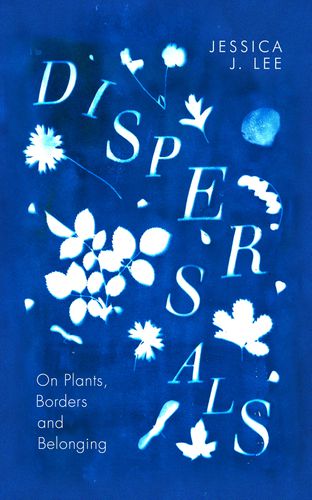Readings Newsletter
Become a Readings Member to make your shopping experience even easier.
Sign in or sign up for free!
You’re not far away from qualifying for FREE standard shipping within Australia
You’ve qualified for FREE standard shipping within Australia
The cart is loading…






A seed slips beyond a garden wall. A seaweed drifts through an ocean. A tree is planted on a shifting border. A shrub is uprooted from its culture and its land. What happens when these plants leave their original homes and put down roots elsewhere?
Born in Canada to a Taiwanese mother and a Welsh father, steeped in both literary and scientific traditions, Jessica J. Lee is a perfectly placed observer of our world in motion.
In this vibrant book of linked essays she explores the entanglements of the plant and human worlds, and the echoes and counterpoints she detects in the migration of plants and people - and the language we use to describe them.
Each of the plants considered in this collection are somehow perceived as being "out of place"- whether weeds, samples collected through imperial science, or crops introduced and transformed by our hand.
Combining memoir, history, and scientific research in precise and poetic prose, Jessica J. Lee meditates on the question of how both plants and people come to belong - or not - as they border cross, and reveals how all our futures are more entwined than we might imagine.
$9.00 standard shipping within Australia
FREE standard shipping within Australia for orders over $100.00
Express & International shipping calculated at checkout
A seed slips beyond a garden wall. A seaweed drifts through an ocean. A tree is planted on a shifting border. A shrub is uprooted from its culture and its land. What happens when these plants leave their original homes and put down roots elsewhere?
Born in Canada to a Taiwanese mother and a Welsh father, steeped in both literary and scientific traditions, Jessica J. Lee is a perfectly placed observer of our world in motion.
In this vibrant book of linked essays she explores the entanglements of the plant and human worlds, and the echoes and counterpoints she detects in the migration of plants and people - and the language we use to describe them.
Each of the plants considered in this collection are somehow perceived as being "out of place"- whether weeds, samples collected through imperial science, or crops introduced and transformed by our hand.
Combining memoir, history, and scientific research in precise and poetic prose, Jessica J. Lee meditates on the question of how both plants and people come to belong - or not - as they border cross, and reveals how all our futures are more entwined than we might imagine.
Jessica J. Lee’s 2019 travel memoir Two Trees Make a Forest is a text that means a great deal to me for its beautiful exploration of Taiwan, Taiwanese-Chinese history, and living as part of the Taiwanese diaspora. Safe to say that I was very excited by her new release, Dispersals, a book of essays on plants, borders and belonging.
As in Two Trees Make a Forest, Lee blends nature writing, memoir and history in Dispersals, with deeper scientific research clear in her poetic, yet informed writing. Each essay centres on a different plant and its entangled history with people: cherry blossoms, seaweed, tea, soybeans, pine trees, even weeds. Lee traces their journeys across the globe, investigating while she does the language used to describe them – invasive, native, introduced, migrants – to unveil the insidious relationship between the origins of plant exploration and imperialism. She highlights the exploitation of foreign plants for economic gain by Western powers during moments in colonial history, such as the 19th-century Opium Wars. There is also a focus on the murky way with which plants are described as ‘invasive’ when they grow beyond the bounds of where they were first introduced, so that we could profit from their fruit.
Lee’s essays shirk easy answers, probing us to question the darker reality behind the plants we see every day, and the groceries we buy at the supermarket. And while there is time spent looking at the past, Lee also reserves attention for the future – for the resilience seen in pine trees that have existed and adapted since the Miocene and that continue to adapt as our planet warms. For the seaweed that sequesters carbon on large scales. For the conservation efforts taking place in seed banks across the world, housing germplasms that act as safeguards for our planet’s biodiversity. Ultimately, this is an illuminating, deeply thoughtful record that urges us to see our histories and our futures as inextricably linked to the natural world and how we treat it.
Discover new nonfiction books at Readings, with biography, memoir, essays and analysis.